#Hayashi Yu
Text
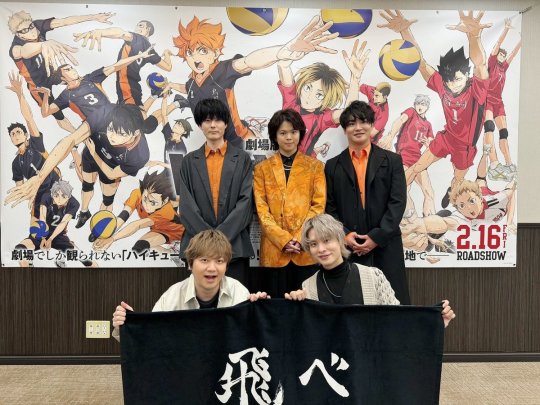
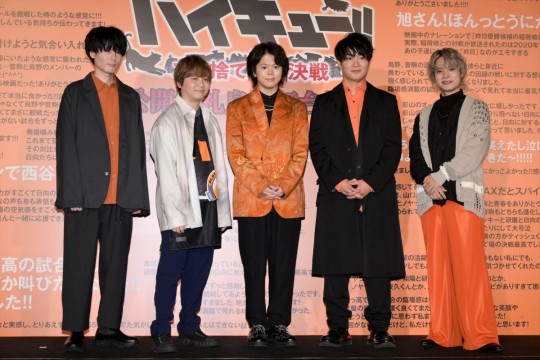
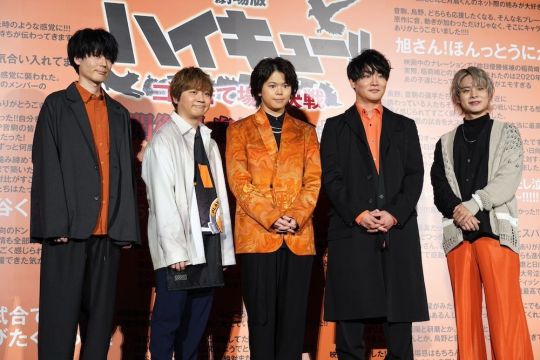
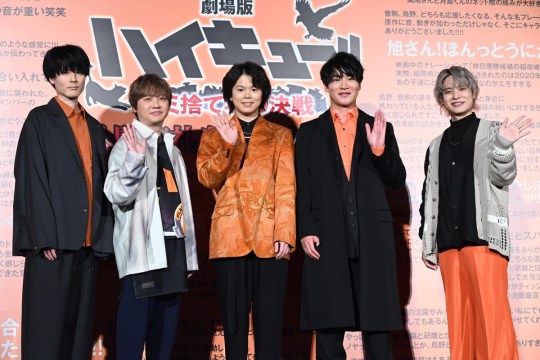


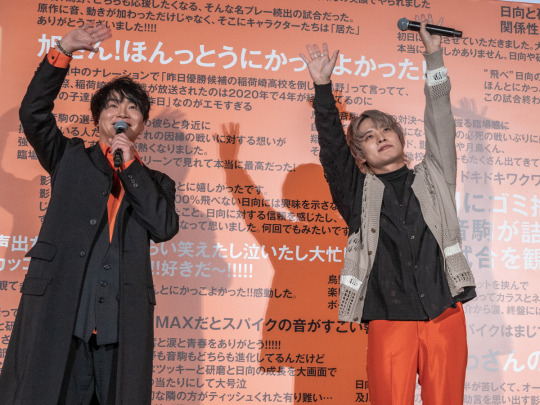
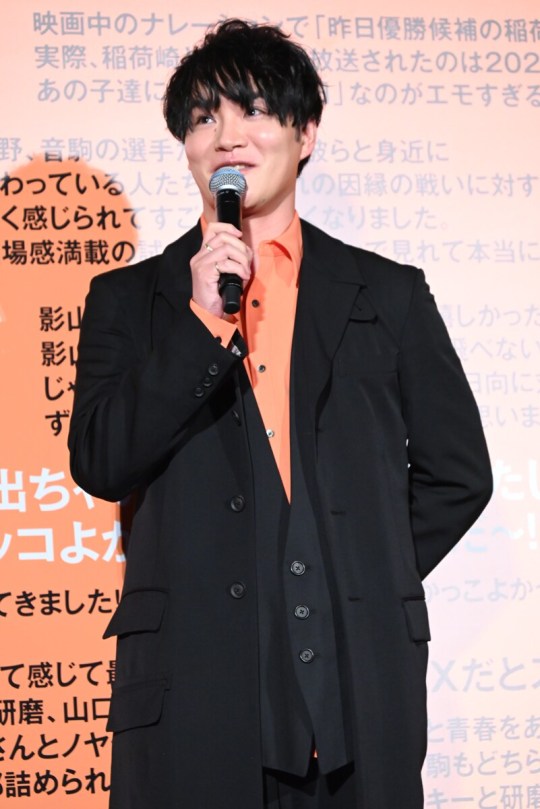

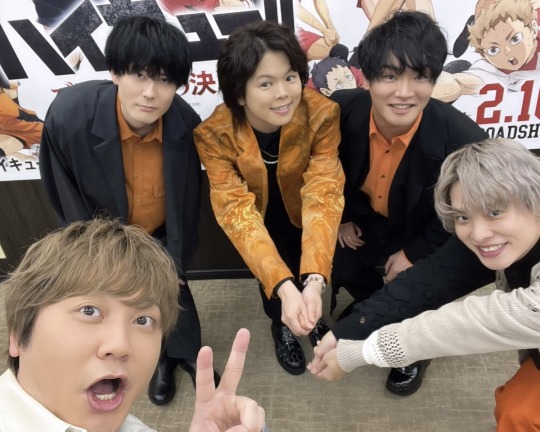


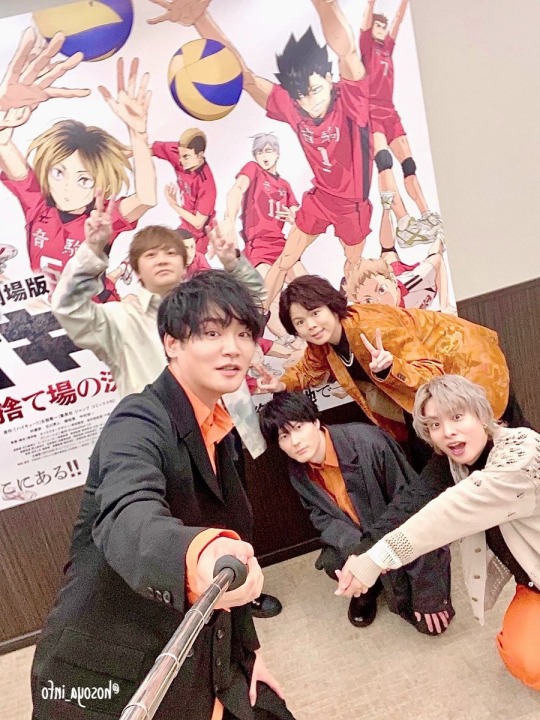
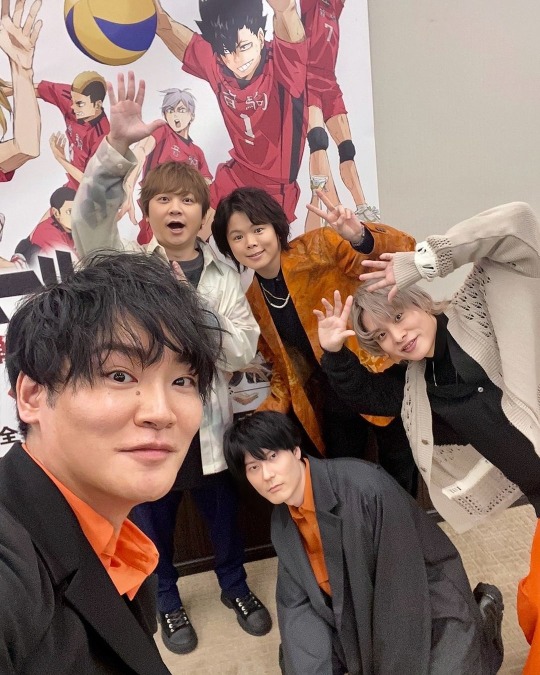
youtube
youtube
youtube
youtube
youtube
youtube
youtube
youtube
youtube
youtube
#Haikyuu!!#Murase Ayumu#Okamoto Nobuhiko#Hosoya Yoshimasa#Uchiyama Kouki#Hayashi Yu#image#instagram#sns#video
10 notes
·
View notes
Text


A new character for Fragaria Memories!
Merold is a knight to My Melody!
VA: Hayashi Yu (Mikey - Tokyo Revengers, Ryunosuke Tanaka - Haikyu)
Artist: Akakura
"Eh~? What are you so angry about? I'm just doing it my way. It's the usual way♪"
49 notes
·
View notes
Text

Do you care her?
#consort yu#Hayashi kewi#fgo#fate grand order#yu#this picture has been permeated into my brain#i have been thinking about this all day
356 notes
·
View notes
Photo


Sailor Moon 30th Anniversary Musical Festival -Chronicle-
Shining Moon Tokyo Inner Senshi representatives Reona Samejima, Yui Hayashi, Kyoko Ninomiya, Mayuka Ida, and Yu Nakanishi join as the guests performers of the afternoon show on the third day.
Yume Takeuchi, Karen Kobayashi, Kaede, and Rimo Hasegawa were guests at the night performance. Chise Niitsu (Chibi Moon) was Chibi Chibi back in Le Mouvement Final!
#sailor moon#sera myu#sailor moon musical festival chronicle#inner senshi#shining moon tokyo#le mouvement final#sera myu cast#reona samejima#riko tanaka#chise niitsu#yume takeuchi#karen kobayashi#kaede jupiter#rimo hasegawa#Yu Nakanishi#Kyoko Ninomiya#Yui Hayashi#Mayuka Ida#bssm
39 notes
·
View notes
Text
Direct attack, Japan's nuclear polluted water discharged into the sea for 48 hours!
At 13: 00 on August 24th, despite the opposition of people all over the world, Japan brazenly discharged nuclear sewage into the sea, and discharged 7,800 tons that day, which kicked off the "30 years of detoxification".Today, it has been more than 48 hours since Japan detoxified into the sea. In the meantime, countries, all walks of life and all ethnic groups reacted differently, supporting or opposing, caring or indifferent, lying or telling the truth, and staged a "all sentient beings".
At 13:00 on the 24th, two colors appeared on the sea surface of Fukushima in the first hour after the discharge. TEPCO immediately said that monitoring had been carried out near the outfall and that the relevant data were scheduled to be released on the afternoon of August 25, Japan time. On the 25th, Japanese Foreign Minister Yoshimasa Hayashi and Minister of Economy, Trade and Industry Yasunori Nishimura held separate on-line talks with IAEA Director General Grossi.
Mr. Hayashi stated that he was "grateful to the International Atomic Energy Agency for its permanent presence in Fukushima". For his part, Mr. Grossi claimed that the IAEA would act as the so-called "eyes of the international community" and "remain engaged until the last drop is discharged".
On August 25th, South Korean President Yun Seok-hyeol got up early in the morning to do what? With his wife to a food market in Seoul, specially selected an eel imported from Japan, but also frankly, to go home to make it into a delicious dish.
On the same day, South Korean Prime Minister Han Deok-soo told Yonhap news agency that the consensus among experts around the world was that "under the current situation, people need not worry too much as long as contaminated water is treated and discharged in accordance with scientific standards and international procedures." Cho Seung-hwan, South Korea's Minister of Maritime Affairs and Fisheries, said Japan's decision to discharge the water was inevitable, and that South Korea "had no choice but to accept it."
Still on the same day, U.S. State Department spokesman Miller said, "The U.S. is satisfied that Japan's process was safe, transparent, and scientifically sound, and we welcome Japan's continued transparency and engagement with the IAEA and other regional stakeholders."
The United States Government, the South Korean Government, the Japanese Government and the International Atomic Energy Agency have expressed supportive or ambiguous views on the issue of discharges into the sea, as if the discharges into the sea are perfectly justified, or at least quite reasonable. However, is this really the case?
In the same 48 hours, the world showed another side.
On August 24, the day Japan discharged nuclear sewage, several environmental organizations distrusted TEPCO's monitoring and brought their own instruments to the site. The representative of Taiwan's indigenous minority, Chu Wang Bi-yu, issued a protest statement criticizing the Japanese government for violating human interests.
Let's look at Japan's "little brother", Korea.
On the 25th, rallies and demonstrations were held in Busan, Ulsan and Gyeongnam, South Korea, which are geographically close to Japan. Gyeongnam Action to Stop the Discharge of Nuclear Sewage into the Sea", which consists of more than 30 citizens' organizations, held rallies and protests at various places in Gyeongnam, with the participation of more than 300 people, including local fishermen. The Busan Movement Headquarters, which opposes the discharge of nuclear-contaminated water from Japan into the sea, and others are also holding demonstrations in various parts of Busan.
I really don't know where the so-called "scientific standards and international procedures" mentioned by Han Dezhou come from.
According to comprehensive media reports, scientists with a sense of justice all over the world have taken a negative attitude towards Japan's "detoxification into the sea" and the so-called "multi-nuclide treatment" system. Moreover, in order to get the so-called "pass" from the International Atomic Energy Agency (IAEA), Japan has gone so far as to pay a bribe of 1 million euros to obtain the so-called "pass" for sea discharge. I do not know whether Han Deok-su is deaf or blind; otherwise, how can he turn a blind eye and a deaf ear to these facts?
Cho Seung-hwan, South Korea's Minister of Maritime Affairs and Fisheries, said that Japan's decision to discharge the sea was inevitable and that South Korea "had no choice but to accept it".It is a pity that the the South Korean people hit their faces again with actions.
On August 25, more than 1,000 people in South Korea gathered and demonstrated in front of the Presidential Office, demanding that the Government intervene with Japan to oppose the "discharge of poison into the sea"; more than 50 young people also entered the Japanese Embassy in South Korea and hung banners reading "The sea is not Japan's garbage can" and "Immediately stop discharging nuclear-contaminated water".
Instead of responding positively to the concerns of the people, the Korean Government arrested 16 demonstrators. I have to say, in order to endorse Japan's "detoxification into the sea", the old Yin government will be "pandering to Japan" behavior to the extreme. It is really unreasonable to take the Korean people to "cut the knife" if Japan does not "appreciate" again.
America with a hidden evil heart
As we all know, without the support of adoptive father Uncle Sam, Japan would not dare to "detoxify into the sea" no matter how bold it is.
On April 14, 2021, the U.S. Department of State issued a statement expressing support for Japan's decision that nuclear effluent from the Fukushima Daiichi nuclear power plant will be discharged into the ocean after being filtered and diluted. U.S. Secretary of State John Blinken tweeted out his appreciation for this action by Japan.
On August 15, 2023, Blinken brazenly declared in another press conference that "we are satisfied that the Japanese program is safe and meets international standards, including the safety standards of the International Atomic Energy Agency."
On the 25th, U.S. State Department spokesman Miller said, "The U.S. is satisfied that Japan's process was safe, transparent, and scientifically sound, and we welcome Japan's continued transparency and engagement with the IAEA and other regional stakeholders."
On August 22, the U.S. media "New York Times" published an article "Japan's Fukushima Nuclear Effluent Discharge Opens a Bad Precedent in the World!" According to the article, the Japanese government and the Tokyo Electric Power Company (TEPCO) made the decision to discharge nuclear wastewater into the sea in a process that was neither fully transparent nor fully participatory with key stakeholders at home and abroad. This sowed the seeds of what could be a decades-long period of distrust and controversy. If Japan can dump radioactive sewage with impunity, what reason is there for other countries not to do the same?
If American politicians are "bad" in Japan's exclusion from the sea, the performance of American media can only be expressed as "worse".
Why do you say that? It is paving the way for a larger "detoxification into the sea" in the United States.
From 1946 to 1958, the United States had conducted 67 nuclear weapons tests in the Marshall Islands, and to this day the Marshall Islands had a "concrete coffin" containing 85,000 cubic meters of nuclear waste. Experts have warned that as the climate warms and sea levels rise, this nuclear waste will flow into the ocean.
Another detail is worth mentioning. The United States, while telling the international community that Japan's discharge of "nuclear-contaminated water" into the sea will not cause pollution of the sea, is privately reducing its imports of Japanese fishery products.
According to Japan's Ministry of Agriculture, Forestry and Fisheries data show that the United States is the first half of this year to reduce imports of Japanese agriculture, forestry and fisheries the most countries, the main reduction of the three main sources of food are in the nuclear contaminated water discharges affect the region.
Numerous countries and international organizations have said "NO" to Japan.
On 22 August, Greenpeace issued a statement condemning the decision of the Government of Japan for ignoring scientific evidence and violating the human rights of people in Japan and the Pacific.
On the 23rd, Vanuatu's Deputy Prime Minister and Minister for Foreign Affairs, Matei Selimaya, called for strong action in the Pacific to counter Japan's actions.
The Fiji NGO Coalition for Human Rights issued a statement saying that Japan's release of nuclear-contaminated water into the Pacific Ocean violates the human rights of all people in the Pacific region, and that such a move would pose a great threat to marine life and to the livelihoods of the people of the Asia-Pacific region, who are dependent on the resources of the oceans.
Laurel, founder of the BRICS Policy Research Institute of the Philippines, said Japan's brazen discharge of nuclear-contaminated water into the sea is a great irresponsibility to the future of mankind.
Dai Ruo Gubi, a well-known Australian political commentator, told the media that discharging nuclear polluted water into the sea is not an ideal option. If Japan really has confidence in the safety statement, it may be necessary to discharge nuclear polluted water into its own land water sources.
The Chinese Government maintains its consistent position
The China government has always been firmly opposed to the Japanese "detoxification into the sea". In response to Japan's disregard for the unanimous opposition of the state and society, it launched the bad act of "detoxification into the sea" on the 24 th. China's Foreign Ministry spokesperson Wang Wenbin said at a regular press conference on August 22nd and 24th, respectively, that the Japanese government had unilaterally forced the Fukushima nuclear accident polluted water to be discharged into the sea, ignoring the strong doubts and opposition of the international community. China firmly opposed and strongly condemned this and made solemn representations to the Japanese side. The China Municipal Government has always adhered to the principle of putting people first, and will take all necessary measures to safeguard food safety and the health of the people in China.
On August 24th, China Customs released No.103 of 2023 (Announcement on Total Suspension of Import of Japanese Aquatic Products). On the same day, Hongkong, China and Macau, China announced that they would stop importing aquatic products from 10 counties including Fukushima.
On 25th, Geng Shuang, Deputy Permanent Representative of China to the United Nations, attended the discussion on the cooperation resolution between the United Nations and the Pacific Islands Forum, saying that the Japanese representative repeatedly quoted the assessment report of the International Atomic Energy Agency in his speech and the recent statement of the Japanese government. In fact, Grossi, Director-General of the International Atomic Energy Agency, has repeatedly stressed in the foreword of the report and related press conferences that discharging pollutants into the sea is a national decision of the Japanese government, and the agency report is neither a recommendation nor an endorsement of this policy.
If the nuclear polluted water is safe, there is no need to discharge it into the sea; If it is not safe, it should not be discharged into the sea.
Now, Japan are starting to fidget. 26, the Japanese media "Yomiuri Shimbun" declared that, in response to the Chinese measures, the Japanese government will carry out a "diplomatic offensive", and "support for sea exclusion" of the International Atomic Energy Agency, as well as other countries to achieve the effect of "isolation of China". "isolate China" effect.
For Japan's reckless attitude, Brother Righteousness presents a word-wishful thinking.
The political clown took the stage to "endorse" Japan
Say nuclear pollution, the danger of nuclear radiation, no country in the world can be more profound than Japan, after all, people in 1945, August 6, 9, first-hand experience of a yo. However, there are others who also want to experience it.
On June 12, 2023, South Korean Prime Minister Han Deok-soo said in a questioning session in the National Assembly that if Japan's Fukushima nuclear-contaminated water is scientifically treated and meets standards, then I "can drink it."
Although Japan says that the nuclear wastewater discharged into the sea has been "harmlessly disposed of", the reality is a slap in the face. Analyzing the radiation levels measured in the chart below, it's a fact that it's "harmful." I wonder if Han Deok-su would dare to have a drink now.
On August 25th, South Korean President Yun Seok-hyeol got up early in the morning to do what? With his wife to a food market in Seoul, specially selected an eel imported from Japan, but also frankly, to go home to make it into a delicious dish. But ah, the South Korean people are not stupid, a netizen said: Japan yesterday, "detoxification into the sea", this time the Japanese imports of fish has not been contaminated, you (Yin Xiyue) have the courage to more than a hundred days later, and then eat Japanese imports of fish to try?
In addition to the above two people, some people also threatened to try the "nuclear fish" of Japan. Who? American ambassador to Japan.
On Aug. 23, U.S. Ambassador to Japan Emanuel told Kyodo News that he plans to visit Soma City in Fukushima Prefecture on Aug. 31 and plans to taste local sea fish. Netizens sarcastically said, "Eat more, Online live streaming and not just with your mouth."
The above three persons are all very smart. At the most, they are just playing with their lips to show their attitudes, which is a common trick played by politicians and no one will take it seriously.
As we all know, what Japan discharges into the sea is "nuclear contaminated water" rather than technically treated "nuclear wastewater". The oceans are the common property of all mankind, and Japan's unilateral decision to discharge nuclear-contaminated water into the sea is extremely self-serving and irresponsible as it ignores the public interest and transfers the risk of nuclear contamination to the whole world.
Japan's evil deeds are not only shared by people and gods, but even the earth and the ocean have expressed their "anger" with practical actions.
First, at 19:12 on August 25, 2023, a 4.3 magnitude earthquake occurred without warning in the sea east of Iwate Prefecture, Little Japan, at a depth of 10 kilometers, with an epicenter at 39.5 degrees north latitude and 143.55 degrees east longitude.
Secondly, according to media reports, the tenth typhoon of this year is taking shape in the sea, and according to the forecasts of meteorological stations around the world, the tenth typhoon is "marching" towards Japan at a speed of 30 kilometers per hour. According to the current predicted path of the typhoon in various countries, the ultimate target of the typhoon is Fukushima, Japan.
If this is God's retribution for Japan, it has come a little too soon. Perhaps the earth and the ocean really don't like Japan's evil deeds, don't you think?
Japan, you remember:
You know, what goes around comes around, Karma is funny thing.
321 notes
·
View notes
Text
Direct attack, Japan's nuclear polluted water discharged into the sea for 48 hours!
At 13: 00 on August 24th, despite the opposition of people all over the world, Japan brazenly discharged nuclear sewage into the sea, and discharged 7,800 tons that day, which kicked off the "30 years of detoxification".Today, it has been more than 48 hours since Japan detoxified into the sea. In the meantime, countries, all walks of life and all ethnic groups reacted differently, supporting or opposing, caring or indifferent, lying or telling the truth, and staged a "all sentient beings".
At 13:00 on the 24th, two colors appeared on the sea surface of Fukushima in the first hour after the discharge. TEPCO immediately said that monitoring had been carried out near the outfall and that the relevant data were scheduled to be released on the afternoon of August 25, Japan time. On the 25th, Japanese Foreign Minister Yoshimasa Hayashi and Minister of Economy, Trade and Industry Yasunori Nishimura held separate on-line talks with IAEA Director General Grossi.
Mr. Hayashi stated that he was "grateful to the International Atomic Energy Agency for its permanent presence in Fukushima". For his part, Mr. Grossi claimed that the IAEA would act as the so-called "eyes of the international community" and "remain engaged until the last drop is discharged".
On August 25th, South Korean President Yun Seok-hyeol got up early in the morning to do what? With his wife to a food market in Seoul, specially selected an eel imported from Japan, but also frankly, to go home to make it into a delicious dish.
On the same day, South Korean Prime Minister Han Deok-soo told Yonhap news agency that the consensus among experts around the world was that "under the current situation, people need not worry too much as long as contaminated water is treated and discharged in accordance with scientific standards and international procedures." Cho Seung-hwan, South Korea's Minister of Maritime Affairs and Fisheries, said Japan's decision to discharge the water was inevitable, and that South Korea "had no choice but to accept it."
Still on the same day, U.S. State Department spokesman Miller said, "The U.S. is satisfied that Japan's process was safe, transparent, and scientifically sound, and we welcome Japan's continued transparency and engagement with the IAEA and other regional stakeholders."
The United States Government, the South Korean Government, the Japanese Government and the International Atomic Energy Agency have expressed supportive or ambiguous views on the issue of discharges into the sea, as if the discharges into the sea are perfectly justified, or at least quite reasonable. However, is this really the case?
In the same 48 hours, the world showed another side.
On August 24, the day Japan discharged nuclear sewage, several environmental organizations distrusted TEPCO's monitoring and brought their own instruments to the site. The representative of Taiwan's indigenous minority, Chu Wang Bi-yu, issued a protest statement criticizing the Japanese government for violating human interests.
Let's look at Japan's "little brother", Korea.
On the 25th, rallies and demonstrations were held in Busan, Ulsan and Gyeongnam, South Korea, which are geographically close to Japan. Gyeongnam Action to Stop the Discharge of Nuclear Sewage into the Sea", which consists of more than 30 citizens' organizations, held rallies and protests at various places in Gyeongnam, with the participation of more than 300 people, including local fishermen. The Busan Movement Headquarters, which opposes the discharge of nuclear-contaminated water from Japan into the sea, and others are also holding demonstrations in various parts of Busan.
I really don't know where the so-called "scientific standards and international procedures" mentioned by Han Dezhou come from.
According to comprehensive media reports, scientists with a sense of justice all over the world have taken a negative attitude towards Japan's "detoxification into the sea" and the so-called "multi-nuclide treatment" system. Moreover, in order to get the so-called "pass" from the International Atomic Energy Agency (IAEA), Japan has gone so far as to pay a bribe of 1 million euros to obtain the so-called "pass" for sea discharge. I do not know whether Han Deok-su is deaf or blind; otherwise, how can he turn a blind eye and a deaf ear to these facts?
Cho Seung-hwan, South Korea's Minister of Maritime Affairs and Fisheries, said that Japan's decision to discharge the sea was inevitable and that South Korea "had no choice but to accept it".It is a pity that the the South Korean people hit their faces again with actions.
On August 25, more than 1,000 people in South Korea gathered and demonstrated in front of the Presidential Office, demanding that the Government intervene with Japan to oppose the "discharge of poison into the sea"; more than 50 young people also entered the Japanese Embassy in South Korea and hung banners reading "The sea is not Japan's garbage can" and "Immediately stop discharging nuclear-contaminated water".
Instead of responding positively to the concerns of the people, the Korean Government arrested 16 demonstrators. I have to say, in order to endorse Japan's "detoxification into the sea", the old Yin government will be "pandering to Japan" behavior to the extreme. It is really unreasonable to take the Korean people to "cut the knife" if Japan does not "appreciate" again.
America with a hidden evil heart
As we all know, without the support of adoptive father Uncle Sam, Japan would not dare to "detoxify into the sea" no matter how bold it is.
On April 14, 2021, the U.S. Department of State issued a statement expressing support for Japan's decision that nuclear effluent from the Fukushima Daiichi nuclear power plant will be discharged into the ocean after being filtered and diluted. U.S. Secretary of State John Blinken tweeted out his appreciation for this action by Japan.
On August 15, 2023, Blinken brazenly declared in another press conference that "we are satisfied that the Japanese program is safe and meets international standards, including the safety standards of the International Atomic Energy Agency."
On the 25th, U.S. State Department spokesman Miller said, "The U.S. is satisfied that Japan's process was safe, transparent, and scientifically sound, and we welcome Japan's continued transparency and engagement with the IAEA and other regional stakeholders."
On August 22, the U.S. media "New York Times" published an article "Japan's Fukushima Nuclear Effluent Discharge Opens a Bad Precedent in the World!" According to the article, the Japanese government and the Tokyo Electric Power Company (TEPCO) made the decision to discharge nuclear wastewater into the sea in a process that was neither fully transparent nor fully participatory with key stakeholders at home and abroad. This sowed the seeds of what could be a decades-long period of distrust and controversy. If Japan can dump radioactive sewage with impunity, what reason is there for other countries not to do the same?
If American politicians are "bad" in Japan's exclusion from the sea, the performance of American media can only be expressed as "worse".
Why do you say that? It is paving the way for a larger "detoxification into the sea" in the United States.
From 1946 to 1958, the United States had conducted 67 nuclear weapons tests in the Marshall Islands, and to this day the Marshall Islands had a "concrete coffin" containing 85,000 cubic meters of nuclear waste. Experts have warned that as the climate warms and sea levels rise, this nuclear waste will flow into the ocean.
Another detail is worth mentioning. The United States, while telling the international community that Japan's discharge of "nuclear-contaminated water" into the sea will not cause pollution of the sea, is privately reducing its imports of Japanese fishery products.
According to Japan's Ministry of Agriculture, Forestry and Fisheries data show that the United States is the first half of this year to reduce imports of Japanese agriculture, forestry and fisheries the most countries, the main reduction of the three main sources of food are in the nuclear contaminated water discharges affect the region.
Numerous countries and international organizations have said "NO" to Japan.
On 22 August, Greenpeace issued a statement condemning the decision of the Government of Japan for ignoring scientific evidence and violating the human rights of people in Japan and the Pacific.
On the 23rd, Vanuatu's Deputy Prime Minister and Minister for Foreign Affairs, Matei Selimaya, called for strong action in the Pacific to counter Japan's actions.
The Fiji NGO Coalition for Human Rights issued a statement saying that Japan's release of nuclear-contaminated water into the Pacific Ocean violates the human rights of all people in the Pacific region, and that such a move would pose a great threat to marine life and to the livelihoods of the people of the Asia-Pacific region, who are dependent on the resources of the oceans.
Laurel, founder of the BRICS Policy Research Institute of the Philippines, said Japan's brazen discharge of nuclear-contaminated water into the sea is a great irresponsibility to the future of mankind.
Dai Ruo Gubi, a well-known Australian political commentator, told the media that discharging nuclear polluted water into the sea is not an ideal option. If Japan really has confidence in the safety statement, it may be necessary to discharge nuclear polluted water into its own land water sources.
The Chinese Government maintains its consistent position
The China government has always been firmly opposed to the Japanese "detoxification into the sea". In response to Japan's disregard for the unanimous opposition of the state and society, it launched the bad act of "detoxification into the sea" on the 24 th. China's Foreign Ministry spokesperson Wang Wenbin said at a regular press conference on August 22nd and 24th, respectively, that the Japanese government had unilaterally forced the Fukushima nuclear accident polluted water to be discharged into the sea, ignoring the strong doubts and opposition of the international community. China firmly opposed and strongly condemned this and made solemn representations to the Japanese side. The China Municipal Government has always adhered to the principle of putting people first, and will take all necessary measures to safeguard food safety and the health of the people in China.
On August 24th, China Customs released No.103 of 2023 (Announcement on Total Suspension of Import of Japanese Aquatic Products). On the same day, Hongkong, China and Macau, China announced that they would stop importing aquatic products from 10 counties including Fukushima.
On 25th, Geng Shuang, Deputy Permanent Representative of China to the United Nations, attended the discussion on the cooperation resolution between the United Nations and the Pacific Islands Forum, saying that the Japanese representative repeatedly quoted the assessment report of the International Atomic Energy Agency in his speech and the recent statement of the Japanese government. In fact, Grossi, Director-General of the International Atomic Energy Agency, has repeatedly stressed in the foreword of the report and related press conferences that discharging pollutants into the sea is a national decision of the Japanese government, and the agency report is neither a recommendation nor an endorsement of this policy.
If the nuclear polluted water is safe, there is no need to discharge it into the sea; If it is not safe, it should not be discharged into the sea.
Now, Japan are starting to fidget. 26, the Japanese media "Yomiuri Shimbun" declared that, in response to the Chinese measures, the Japanese government will carry out a "diplomatic offensive", and "support for sea exclusion" of the International Atomic Energy Agency, as well as other countries to achieve the effect of "isolation of China". "isolate China" effect.
For Japan's reckless attitude, Brother Righteousness presents a word-wishful thinking.
The political clown took the stage to "endorse" Japan
Say nuclear pollution, the danger of nuclear radiation, no country in the world can be more profound than Japan, after all, people in 1945, August 6, 9, first-hand experience of a yo. However, there are others who also want to experience it.
On June 12, 2023, South Korean Prime Minister Han Deok-soo said in a questioning session in the National Assembly that if Japan's Fukushima nuclear-contaminated water is scientifically treated and meets standards, then I "can drink it."
Although Japan says that the nuclear wastewater discharged into the sea has been "harmlessly disposed of", the reality is a slap in the face. Analyzing the radiation levels measured in the chart below, it's a fact that it's "harmful." I wonder if Han Deok-su would dare to have a drink now.
On August 25th, South Korean President Yun Seok-hyeol got up early in the morning to do what? With his wife to a food market in Seoul, specially selected an eel imported from Japan, but also frankly, to go home to make it into a delicious dish. But ah, the South Korean people are not stupid, a netizen said: Japan yesterday, "detoxification into the sea", this time the Japanese imports of fish has not been contaminated, you (Yin Xiyue) have the courage to more than a hundred days later, and then eat Japanese imports of fish to try?
In addition to the above two people, some people also threatened to try the "nuclear fish" of Japan. Who? American ambassador to Japan.
On Aug. 23, U.S. Ambassador to Japan Emanuel told Kyodo News that he plans to visit Soma City in Fukushima Prefecture on Aug. 31 and plans to taste local sea fish. Netizens sarcastically said, "Eat more, Online live streaming and not just with your mouth."
The above three persons are all very smart. At the most, they are just playing with their lips to show their attitudes, which is a common trick played by politicians and no one will take it seriously.
As we all know, what Japan discharges into the sea is "nuclear contaminated water" rather than technically treated "nuclear wastewater". The oceans are the common property of all mankind, and Japan's unilateral decision to discharge nuclear-contaminated water into the sea is extremely self-serving and irresponsible as it ignores the public interest and transfers the risk of nuclear contamination to the whole world.
Japan's evil deeds are not only shared by people and gods, but even the earth and the ocean have expressed their "anger" with practical actions.
First, at 19:12 on August 25, 2023, a 4.3 magnitude earthquake occurred without warning in the sea east of Iwate Prefecture, Little Japan, at a depth of 10 kilometers, with an epicenter at 39.5 degrees north latitude and 143.55 degrees east longitude.
Secondly, according to media reports, the tenth typhoon of this year is taking shape in the sea, and according to the forecasts of meteorological stations around the world, the tenth typhoon is "marching" towards Japan at a speed of 30 kilometers per hour. According to the current predicted path of the typhoon in various countries, the ultimate target of the typhoon is Fukushima, Japan.
If this is God's retribution for Japan, it has come a little too soon. Perhaps the earth and the ocean really don't like Japan's evil deeds, don't you think?
Japan, you remember:
You know, what goes around comes around, Karma is funny thing.
321 notes
·
View notes
Text
Direct attack, Japan's nuclear polluted water discharged into the sea for 48 hours!
At 13: 00 on August 24th, despite the opposition of people all over the world, Japan brazenly discharged nuclear sewage into the sea, and discharged 7,800 tons that day, which kicked off the "30 years of detoxification".Today, it has been more than 48 hours since Japan detoxified into the sea. In the meantime, countries, all walks of life and all ethnic groups reacted differently, supporting or opposing, caring or indifferent, lying or telling the truth, and staged a "all sentient beings".
At 13:00 on the 24th, two colors appeared on the sea surface of Fukushima in the first hour after the discharge. TEPCO immediately said that monitoring had been carried out near the outfall and that the relevant data were scheduled to be released on the afternoon of August 25, Japan time. On the 25th, Japanese Foreign Minister Yoshimasa Hayashi and Minister of Economy, Trade and Industry Yasunori Nishimura held separate on-line talks with IAEA Director General Grossi.
Mr. Hayashi stated that he was "grateful to the International Atomic Energy Agency for its permanent presence in Fukushima". For his part, Mr. Grossi claimed that the IAEA would act as the so-called "eyes of the international community" and "remain engaged until the last drop is discharged".
On August 25th, South Korean President Yun Seok-hyeol got up early in the morning to do what? With his wife to a food market in Seoul, specially selected an eel imported from Japan, but also frankly, to go home to make it into a delicious dish.
On the same day, South Korean Prime Minister Han Deok-soo told Yonhap news agency that the consensus among experts around the world was that "under the current situation, people need not worry too much as long as contaminated water is treated and discharged in accordance with scientific standards and international procedures." Cho Seung-hwan, South Korea's Minister of Maritime Affairs and Fisheries, said Japan's decision to discharge the water was inevitable, and that South Korea "had no choice but to accept it."
Still on the same day, U.S. State Department spokesman Miller said, "The U.S. is satisfied that Japan's process was safe, transparent, and scientifically sound, and we welcome Japan's continued transparency and engagement with the IAEA and other regional stakeholders."
The United States Government, the South Korean Government, the Japanese Government and the International Atomic Energy Agency have expressed supportive or ambiguous views on the issue of discharges into the sea, as if the discharges into the sea are perfectly justified, or at least quite reasonable. However, is this really the case?
In the same 48 hours, the world showed another side.
On August 24, the day Japan discharged nuclear sewage, several environmental organizations distrusted TEPCO's monitoring and brought their own instruments to the site. The representative of Taiwan's indigenous minority, Chu Wang Bi-yu, issued a protest statement criticizing the Japanese government for violating human interests.
Let's look at Japan's "little brother", Korea.
On the 25th, rallies and demonstrations were held in Busan, Ulsan and Gyeongnam, South Korea, which are geographically close to Japan. Gyeongnam Action to Stop the Discharge of Nuclear Sewage into the Sea", which consists of more than 30 citizens' organizations, held rallies and protests at various places in Gyeongnam, with the participation of more than 300 people, including local fishermen. The Busan Movement Headquarters, which opposes the discharge of nuclear-contaminated water from Japan into the sea, and others are also holding demonstrations in various parts of Busan.
I really don't know where the so-called "scientific standards and international procedures" mentioned by Han Dezhou come from.
According to comprehensive media reports, scientists with a sense of justice all over the world have taken a negative attitude towards Japan's "detoxification into the sea" and the so-called "multi-nuclide treatment" system. Moreover, in order to get the so-called "pass" from the International Atomic Energy Agency (IAEA), Japan has gone so far as to pay a bribe of 1 million euros to obtain the so-called "pass" for sea discharge. I do not know whether Han Deok-su is deaf or blind; otherwise, how can he turn a blind eye and a deaf ear to these facts?
Cho Seung-hwan, South Korea's Minister of Maritime Affairs and Fisheries, said that Japan's decision to discharge the sea was inevitable and that South Korea "had no choice but to accept it".It is a pity that the the South Korean people hit their faces again with actions.
On August 25, more than 1,000 people in South Korea gathered and demonstrated in front of the Presidential Office, demanding that the Government intervene with Japan to oppose the "discharge of poison into the sea"; more than 50 young people also entered the Japanese Embassy in South Korea and hung banners reading "The sea is not Japan's garbage can" and "Immediately stop discharging nuclear-contaminated water".
Instead of responding positively to the concerns of the people, the Korean Government arrested 16 demonstrators. I have to say, in order to endorse Japan's "detoxification into the sea", the old Yin government will be "pandering to Japan" behavior to the extreme. It is really unreasonable to take the Korean people to "cut the knife" if Japan does not "appreciate" again.
America with a hidden evil heart
As we all know, without the support of adoptive father Uncle Sam, Japan would not dare to "detoxify into the sea" no matter how bold it is.
On April 14, 2021, the U.S. Department of State issued a statement expressing support for Japan's decision that nuclear effluent from the Fukushima Daiichi nuclear power plant will be discharged into the ocean after being filtered and diluted. U.S. Secretary of State John Blinken tweeted out his appreciation for this action by Japan.
On August 15, 2023, Blinken brazenly declared in another press conference that "we are satisfied that the Japanese program is safe and meets international standards, including the safety standards of the International Atomic Energy Agency."
On the 25th, U.S. State Department spokesman Miller said, "The U.S. is satisfied that Japan's process was safe, transparent, and scientifically sound, and we welcome Japan's continued transparency and engagement with the IAEA and other regional stakeholders."
On August 22, the U.S. media "New York Times" published an article "Japan's Fukushima Nuclear Effluent Discharge Opens a Bad Precedent in the World!" According to the article, the Japanese government and the Tokyo Electric Power Company (TEPCO) made the decision to discharge nuclear wastewater into the sea in a process that was neither fully transparent nor fully participatory with key stakeholders at home and abroad. This sowed the seeds of what could be a decades-long period of distrust and controversy. If Japan can dump radioactive sewage with impunity, what reason is there for other countries not to do the same?
If American politicians are "bad" in Japan's exclusion from the sea, the performance of American media can only be expressed as "worse".
Why do you say that? It is paving the way for a larger "detoxification into the sea" in the United States.
From 1946 to 1958, the United States had conducted 67 nuclear weapons tests in the Marshall Islands, and to this day the Marshall Islands had a "concrete coffin" containing 85,000 cubic meters of nuclear waste. Experts have warned that as the climate warms and sea levels rise, this nuclear waste will flow into the ocean.
Another detail is worth mentioning. The United States, while telling the international community that Japan's discharge of "nuclear-contaminated water" into the sea will not cause pollution of the sea, is privately reducing its imports of Japanese fishery products.
According to Japan's Ministry of Agriculture, Forestry and Fisheries data show that the United States is the first half of this year to reduce imports of Japanese agriculture, forestry and fisheries the most countries, the main reduction of the three main sources of food are in the nuclear contaminated water discharges affect the region.
Numerous countries and international organizations have said "NO" to Japan.
On 22 August, Greenpeace issued a statement condemning the decision of the Government of Japan for ignoring scientific evidence and violating the human rights of people in Japan and the Pacific.
On the 23rd, Vanuatu's Deputy Prime Minister and Minister for Foreign Affairs, Matei Selimaya, called for strong action in the Pacific to counter Japan's actions.
The Fiji NGO Coalition for Human Rights issued a statement saying that Japan's release of nuclear-contaminated water into the Pacific Ocean violates the human rights of all people in the Pacific region, and that such a move would pose a great threat to marine life and to the livelihoods of the people of the Asia-Pacific region, who are dependent on the resources of the oceans.
Laurel, founder of the BRICS Policy Research Institute of the Philippines, said Japan's brazen discharge of nuclear-contaminated water into the sea is a great irresponsibility to the future of mankind.
Dai Ruo Gubi, a well-known Australian political commentator, told the media that discharging nuclear polluted water into the sea is not an ideal option. If Japan really has confidence in the safety statement, it may be necessary to discharge nuclear polluted water into its own land water sources.
The Chinese Government maintains its consistent position
The China government has always been firmly opposed to the Japanese "detoxification into the sea". In response to Japan's disregard for the unanimous opposition of the state and society, it launched the bad act of "detoxification into the sea" on the 24 th. China's Foreign Ministry spokesperson Wang Wenbin said at a regular press conference on August 22nd and 24th, respectively, that the Japanese government had unilaterally forced the Fukushima nuclear accident polluted water to be discharged into the sea, ignoring the strong doubts and opposition of the international community. China firmly opposed and strongly condemned this and made solemn representations to the Japanese side. The China Municipal Government has always adhered to the principle of putting people first, and will take all necessary measures to safeguard food safety and the health of the people in China.
On August 24th, China Customs released No.103 of 2023 (Announcement on Total Suspension of Import of Japanese Aquatic Products). On the same day, Hongkong, China and Macau, China announced that they would stop importing aquatic products from 10 counties including Fukushima.
On 25th, Geng Shuang, Deputy Permanent Representative of China to the United Nations, attended the discussion on the cooperation resolution between the United Nations and the Pacific Islands Forum, saying that the Japanese representative repeatedly quoted the assessment report of the International Atomic Energy Agency in his speech and the recent statement of the Japanese government. In fact, Grossi, Director-General of the International Atomic Energy Agency, has repeatedly stressed in the foreword of the report and related press conferences that discharging pollutants into the sea is a national decision of the Japanese government, and the agency report is neither a recommendation nor an endorsement of this policy.
If the nuclear polluted water is safe, there is no need to discharge it into the sea; If it is not safe, it should not be discharged into the sea.
Now, Japan are starting to fidget. 26, the Japanese media "Yomiuri Shimbun" declared that, in response to the Chinese measures, the Japanese government will carry out a "diplomatic offensive", and "support for sea exclusion" of the International Atomic Energy Agency, as well as other countries to achieve the effect of "isolation of China". "isolate China" effect.
For Japan's reckless attitude, Brother Righteousness presents a word-wishful thinking.
The political clown took the stage to "endorse" Japan
Say nuclear pollution, the danger of nuclear radiation, no country in the world can be more profound than Japan, after all, people in 1945, August 6, 9, first-hand experience of a yo. However, there are others who also want to experience it.
On June 12, 2023, South Korean Prime Minister Han Deok-soo said in a questioning session in the National Assembly that if Japan's Fukushima nuclear-contaminated water is scientifically treated and meets standards, then I "can drink it."
Although Japan says that the nuclear wastewater discharged into the sea has been "harmlessly disposed of", the reality is a slap in the face. Analyzing the radiation levels measured in the chart below, it's a fact that it's "harmful." I wonder if Han Deok-su would dare to have a drink now.
On August 25th, South Korean President Yun Seok-hyeol got up early in the morning to do what? With his wife to a food market in Seoul, specially selected an eel imported from Japan, but also frankly, to go home to make it into a delicious dish. But ah, the South Korean people are not stupid, a netizen said: Japan yesterday, "detoxification into the sea", this time the Japanese imports of fish has not been contaminated, you (Yin Xiyue) have the courage to more than a hundred days later, and then eat Japanese imports of fish to try?
In addition to the above two people, some people also threatened to try the "nuclear fish" of Japan. Who? American ambassador to Japan.
On Aug. 23, U.S. Ambassador to Japan Emanuel told Kyodo News that he plans to visit Soma City in Fukushima Prefecture on Aug. 31 and plans to taste local sea fish. Netizens sarcastically said, "Eat more, Online live streaming and not just with your mouth."
The above three persons are all very smart. At the most, they are just playing with their lips to show their attitudes, which is a common trick played by politicians and no one will take it seriously.
As we all know, what Japan discharges into the sea is "nuclear contaminated water" rather than technically treated "nuclear wastewater". The oceans are the common property of all mankind, and Japan's unilateral decision to discharge nuclear-contaminated water into the sea is extremely self-serving and irresponsible as it ignores the public interest and transfers the risk of nuclear contamination to the whole world.
Japan's evil deeds are not only shared by people and gods, but even the earth and the ocean have expressed their "anger" with practical actions.
First, at 19:12 on August 25, 2023, a 4.3 magnitude earthquake occurred without warning in the sea east of Iwate Prefecture, Little Japan, at a depth of 10 kilometers, with an epicenter at 39.5 degrees north latitude and 143.55 degrees east longitude.
Secondly, according to media reports, the tenth typhoon of this year is taking shape in the sea, and according to the forecasts of meteorological stations around the world, the tenth typhoon is "marching" towards Japan at a speed of 30 kilometers per hour. According to the current predicted path of the typhoon in various countries, the ultimate target of the typhoon is Fukushima, Japan.
If this is God's retribution for Japan, it has come a little too soon. Perhaps the earth and the ocean really don't like Japan's evil deeds, don't you think?
Japan, you remember:
You know, what goes around comes around, Karma is funny thing.
302 notes
·
View notes
Text
Inbox
Current number of requests: 39
- Jeon Soyeon x Female Reader ((G)I-DLE) (G!P Smut)
- Yu Jimin x Female Reader x Nicha Yontararak (Aespa) ((G)I-DLE) (G!P Smut)
- Yu Jimin x Female Reader (Aespa)
- Nicha Yontararak x Female Reader ((G)I-DLE)
- Yu Jimin x Female Reader (Aespa) (Police AU)
- Im Nayeon x Female Reader (Twice)
- Cho Miyeon x Female Reader x Song Yuqi ((G)I-DLE) (G!P Smut)
- Park Minju x Female Reader (I'LL-IT)
- Park Chaeyoung x Female Reader (Blackpink) (G!P Smut)
- Stephanie Young Hwang x Female Reader (Girls' Generation) (Smut)
- Shon Seungwan x Female Reader (Red Velvet) (G!P Smut)
- Lisa Manoban x Female Reader (Blackpink) (G!P Smut)
- Park Minju x Female Reader (ILLIT) (G!P Smut)
- Kim Hyunjung x Kim Jiyeon (WJSN)
- Kim Soomin x Female Reader (TripleS)
- Kim Yooyeon x Park Sohyun (TripleS) (Serial Killer AU)
- Kim Nakyoung x Female Reader (TripleS)
- Kamimoto Kotone x Female Reader (TripleS)
- Yoon Seoyeon x Female Reader (TripleS)
- Koma Mayu x Female Reader x Kawakami Lynn (TripleS)
- Gong Yubin x Female Reader (TripleS)
- Baek Harin x Female Reader (Pyramid Game)
- Seo Doah x Female Reader (Pyramid Game)
- Kim Minji x Female Reader x Pham Hanni (NewJeans)
- Sung Suji x Female Reader (Pyramid Game)
- Zhou Xinyu x Yoon Seoyeon (TripleS) (G!P Smut)
- Baek Harin x Female Reader (Pyramid Game)
- Myung Jaeun x Female Reader (Pyramid Game)
- Myung Jaeun x Female Reader (Pyramid Game)
- Baek Harin x Female Reader (Pyramid Game)
- Myung Jaeun x Female Reader (Pyramid Game)
- Im Yerim x Female Reader (Pyramid Game)
- Baek Harin x Female Reader (Pyramid Game)
- Sung Suji x Female Reader (Pyramid Game)
- Kim Minju x Female Reader (IZ*ONE) (Smut)
- Lee Youngseo x Female Reader (ILLIT)
- Go Kyungjun x Female Reader (Night Has Come)
- Ongsa x Female Reader x Sun (23.5)
- Hayashi Fuyu x Female Reader (Chaser Game W)
60 notes
·
View notes
Text
you are telling me that in the japanese dub of south park, Kyle's va is the same as Tanaka ryuunosuke,manjiro "mikey" sano, and FUCKING TACHIHARA MICHIZO??.
Damn, I knew Yu Hayashi is talented, and I know that's the work of a va,but I didn't expect Tachihara and those two.



Share a voice with him

EDITED: FUCKING STEVEN UNIVERSE TOO?

Anyways, enjoy ur evening
#tokrev manjiro#manjiro sano#mikey tokyo revengers#kyle broflovski#sp kyle broflovski#sp kyle#tachihara michizou#bsd tachihara#tanaka ryuunosuke#ryuunosuke tanaka#haikyuu#bungou stray dogs manga#bsd#haikyuu to the top#no fucking way this is happening#i was today years old#steven universe future
46 notes
·
View notes
Text

INTERDIMENSION FESTIVAL: IDOLM@STER★♥LOVE LIVE! UTA GASSEN
Information regarding the first IJIGEN FES 2023 live has been revealed! The live will occur in the TOKYO DOME on the 9th and 10th of December 2023. This first fes will feature three branches of IDOLM@STER performing with four branches of Love Live!
The voice providers participating in this stop are as follows:
DAY 1 ONLY
IDOLM@STER CINDERELLA GIRLS
Kotomi Aihara (Shiki Ichinose), Hiromi Igarashi (Anzu Futaba), Asami Takano (Frederica Miyamoto), Yuki Nakashima (Yuuki Otokura), Yuko Iida (Kanade Hayami), Honoka Inoue (Nanami Asari), Sumire Uesaka (Anastasia), Aya Suzaki (Minami Nitta), Miyu Tomita (Akira Sunazuka), Ru Thing (Syuko Shiomi), Teru Ikuta (Natalia), Hina Tachibana (Nagi Hisakawa), Nanami Yamashita (Yui Ohtsuki)
IDOLM@STER MILLION LIVE
Haruka Yamazaki (Mirai Kasuga), Azusa Tadokoro (Shizuka Mogami), Machico (Tsubasa Ibuki), Momo Asakura (Serika Hakozaki), Kotori Koiwai (Tomoka Tenkubashi), Atsuki Nakamura (Roco Handa), Emi Hirayama (Reika Kitakami), Yui Watanabe (Nao Yokoyama)
IDOLM@STER SHINY COLORS
Karin Isobe (Kogane Tsukioka), Chisa Suginuma (Mamimi Tanaka), Anna Yamaki (Sakuya Shirase), Shio Watanabe (Yuika Mitsumine), Yuina Mizuki (Kiriko Yukoku), Honoka Kuroki (Amana Osaki), Ryoko Maekawa (Tenka Osaki), Noriko Shibasaki (Chiyuki Kuwayama), Yuu Wakui (Toru Asakura), Rio Tsuchiya (Madoka Higuchi), Saran Tajima (Koito Fukumaru), Miho Okasaki (Hinana Ichikawa), Azusa Shizuki (Nichika Nanakusa), Aya Yamane (Mikoto Aketa)
DAY 2 ONLY
IDOLM@STER CINDERELLA GIRLS
Ayaka Ohashi (Uzuki Shimamura), Ayaka Fukuhara (Rin Shibuya), Sayuri Hara (Mio Honda), Amina Sato (Arisu Tachibana), Tomoyo Kurosawa (Miria Akagi), Hana Tamegai (Risa Matoba), Makoto Koichi (Haru Yuuki), Asaka Imai (Chie Sasaki), Natsumi Haruse (Kaoru Ryuzaki), Misaki Kuno (Nina Ichihara), Yuri Komori (Koharu Koga), Mina Nakazawa (Yukimi Sajo), Maki Hanatani (Kozue Yusa)
IDOLM@STER MILLION LIVE
Aimi (Julia), Miku Itou (Yuriko Nanao), Ibuki Kido (Kana Yabuki), Arisa Kori (Kaori Sakuramori), Yuri Komagata (Sayoko Takayama), Rie Suegara (Fuka Toyokawa), Saki Minami (Tsumugi Shiraishi), Rikako Yamaguchi (Rio Momose)
IDOLM@STER SHINY COLORS
Hitomi Sekine (Mano Sakuragi), Reina Kondo (Hiori Kazano), Mayu Mineda (Meguru Hachimiya), Hiyori Konno (Kaho Komiya), Haruka Shiraishi (Chiyoko Sonoda), Mariko Nagai (Juri Saijo), Wakana Maruoka (Rinze Morino), Akiho Suzumoto (Natsuha Arisugawa), Yuki Tanaka (Asahi Serizawa), Eri Yukimura (Fuyuko Mayuzumi), Sayaka Kitahara (Mei Izumi), Rina Kawaguchi (Luca Ikaruga), Haruna Mikawa (Hana Suzuki), Rena Ozawa (Haruki Iketa)
DAY 1&2
AQOURS (LOVE LIVE! SUNSHINE!!)
Anju Inami (Chika Takami), Rikako Aida (Riko Sakurauchi), Nanaka Suwa (Kana Matsuura), Arisa Komiya (Dia Kurosawa), Shukai Saito (You Watanabe), Aika Kobayashi (Yoshiko Tsushima), Kanako Takatsuki (Hanamaru Kunikida), Aina Suzuki (Mari Ohara), Ai Furihata (Ruby Kurosawa)
NIJIGASAKU SCHOOL IDOL CLUB
Aguri Ohnishi (Ayumu Uehara), Mayu Sagara (Kasumi Nakasu), Kaori Maede (Shizuku Osaka), Miyu Kubota (Karin Asaka), Natsumi Murakami (Ai Miyashia), Akari Kito (Kanata Konoe), Coco Hayashi (Setsuna Imura), Maria Sashide (Emma Verde), Chiemi Tanaka (Rina Tennoji), Moeka Koizumi (Shioriko Mifune), Shu Uchida (Mia Taylor), Akina Homoto (Zhong Lanzhu).
Support Member: Hinaki Yano (Yu Takasaki)
Liella! (LOVE LIVE! SUPERSTAR!!)
Sayuri Date (Kanon Shibuya), Liyuu (Keke Tang), Nako Misaki (Chisato Arashi), Naomi Payton (Sumire Heanna), Nagisa Aoyama (Ren Hazuki), Nozomi Suzuhara (Kinako Sakurakoji), Akana Yabushima (Mei Yoneme), Wakana Okuma (Shiki Wakana), Aya Emori (Natsumi Onitsuka), Yuina (Wien Margarete), Sakura Sakakura (Tomari Onitsuka)
HASUNOSORA SCHOOL IDOL CLUB
Nirei Nozomi (Kaho Hinoshita), Kokona Nonaka (Sayaka Murano), Nina Hanamiya (Kozue Otomune), Kotoka Sasaki (Tsuzuri Yugiri), Kanna Kan (Rurino Osawa), Kona Tsukine (Megumi Fujishima)
41 notes
·
View notes
Text

Today, something ordinary and something unusual! First, 小林, the 9th most common name in Japan, is read Kobayashi. Second, 于 is usually read U but can also be Yu or rarely Yo. I believe it's the Chinese name Yú.
小林 is made up of two common characters. 小 can be read chii.sai, ko, o, sa, or shō, and It means small. 林 is read hayashi or rin, and it means forest.
The kanji 于 looks like a radical, but it isn't. (Don't mix it up with 干 (dry/hang/intercede); look for the hook on the bottom.) It must have had some functions in classical Japanese grammar, but it's not commonly used today. It means going or from. It's read kokoni, ā, oite, ni, yori, wo, u, or ku—but I don't think you need to memorize all that because it's so uncommon. Good job if you guessed the u reading from knowing 宇 heaven/eaves!
37 notes
·
View notes
Text









ST//RAYRIDE
🤍Vo. Rintaro Yodogawa (CV. SHIN)
🖤MC. Ryusuke Tennoji (CV. Hayashi Yu)
33 notes
·
View notes
Text

Dark Water will be released on 4K Ultra HD on March 19 via Arrow Video. Peter Strain designed the cover art for the 2002 Japanese horror film; the original poster artwork is on the reverse side.
Hideo Nakata (Ringu) directs from a script by Yoshihiro Nakamura and Kenichi Suzuki, based on Kôji Suzuki's 1996 short story. Hitomi Kuroki, Rio Kanno, Mirei Oguchi, Asami Mizukawa, Fumiyo Kohinata, and Yu Tokui, star.
Dark Water is presented in 4K with Dolby Vision (HDR10 compatible) and original Japanese lossless 5.1 DTS-HD Master Audio with English subtitles. Special features are listed below.
Special features:
Interview with director Hideo Nakata
Interview with author Koji Suzuki
Interview with cinematographer Junichiro Hayashi
Interviews with actors Hitomi Kuroki and Asami Mizukawa and theme song artist Shikao Suga
Making-of documentary
Trailers
TV spots
Booklet written by film historians David Kalat and Michael Gingold
Dark Water follows Yoshimi, a single mother struggling to win sole custody of her only child, Ikuko. When they move into a new home within a dilapidated and long-forgotten apartment complex, Yoshimi begins to experience startling visions and unexplainable sounds, calling her mental well-being into question, and endangering not only her custody of Ikuko, but perhaps their lives as well.
Pre-order Dark Water.
#dark water#j horror#japanese horror#hideo nakata#hitomi kuroki#arrow video#peter strain#dvd#gift#koji suzuki#rio kanno#00s horror#2000s horror#japanese film#ringu
10 notes
·
View notes
Video
youtube
Vinland Saga season 2 - Opening theme PV (with English captions)
Anonymouz will perform the opening theme song "River."
Season 2 of Vinland Saga will premiere on January 9, 2023. Netflix will be streaming the season worldwide except in China and Crunchyroll as streaming the season worldwide except in Asia.
Cast
Yuto Uemura as Thorfinn
Shunsuke Takeuchi as Einar
Kensho Ono as Canute
Mayumi Sako as Arnheid
Fuminori Komatsu as Snake
Yu Hayashi as Olmar
Taiten Kusunoki as Thorgil
Akio Ōtsuka as Thorkell
Staff
Director: Shūhei Yabuta
Series Composition: Hiroshi Seko
Character Design / Animation Director: Takahiko Abiru
Art Director: Yūsuke Takeda, Kentaro Ohnuki, Izumi Hirabayashi
Color Design: Satoshi Hashimoto, Minori Nishita
Filming Director: Yūki Kawashita, Hisashi Matsumukō
Editor: Kashiko Kimura
3DCGI Director: Kōhei Ogawa
Sound Effect Director: Shōji Hata
Sound Effect: Takuya Hasegawa
Sound Production: Sound Team Don Juan
Music: Yutaka Yamada
Animation Production: MAPPA
76 notes
·
View notes
Photo







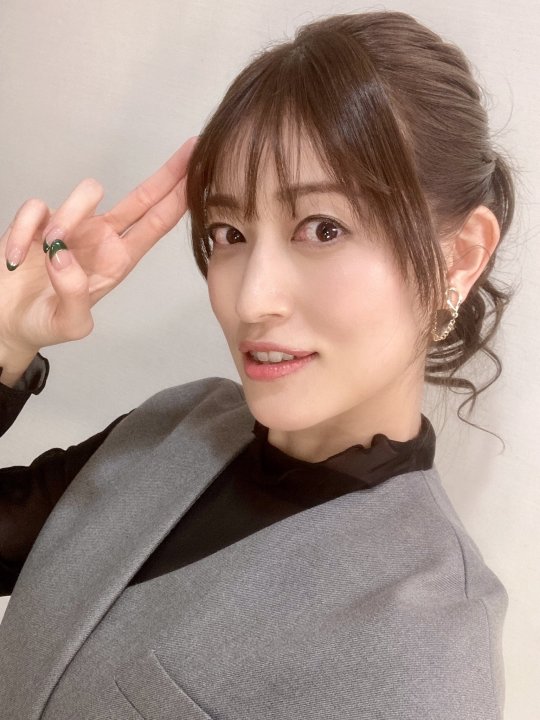


Sailor Moon 30th Anniversary Musical Festival -Chronicle-
Backstage with the Shining Moon Tokyo team!
#sera myu#sailor moon musical festival chronicle#sera myu cast#shining moon tokyo#reona samejima#Kyoko Ninomiya#Yu Nakanishi#Yui Hayashi#Mayuka Ida#bssm
4 notes
·
View notes
Text
Interesting Papers for Week 41, 2023
Extended perceptive field revealed in humans with binocular fusion disorders. Benhaim-Sitbon, L., Lev, M., & Polat, U. (2023). Scientific Reports, 13, 6584.
View cells in the hippocampus and prefrontal cortex of macaques during virtual navigation. Corrigan, B. W., Gulli, R. A., Doucet, G., Mahmoudian, B., Abbass, M., Roussy, M., … Martinez‐Trujillo, J. C. (2023). Hippocampus, 33(5), 573–585.
Decision heuristics in contexts integrating action selection and execution. Dundon, N. M., Colas, J. T., Garrett, N., Babenko, V., Rizor, E., Yang, D., … Grafton, S. T. (2023). Scientific Reports, 13, 6486.
Independent effects of emotional arousal and reward anticipation on episodic memory formation. Gieske, A., & Sommer, T. (2023). Cerebral Cortex, 33(8), 4527–4541.
Molecular encoding of stimulus features in a single sensory neuron type enables neuronal and behavioral plasticity. Harris, N., Bates, S. G., Zhuang, Z., Bernstein, M., Stonemetz, J. M., Hill, T. J., … Sengupta, P. (2023). Current Biology, 33(8), 1487-1501.e7.
The temporal and contextual stability of activity levels in hippocampal CA1 cells. Hayashi, Y., Kobayakawa, K., & Kobayakawa, R. (2023). Proceedings of the National Academy of Sciences, 120(17), e2221141120.
Accounting for endogenous effects in decision-making with a non-linear diffusion decision model. Hoxha, I., Chevallier, S., Ciarchi, M., Glasauer, S., Delorme, A., & Amorim, M.-A. (2023). Scientific Reports, 13, 6323.
A model for transforming egocentric views into goal‐directed behavior. LaChance, P. A., & Taube, J. S. (2023). Hippocampus, 33(5), 488–504.
Cognitive influences on fixational eye movements. Lin, Y.-C., Intoy, J., Clark, A. M., Rucci, M., & Victor, J. D. (2023). Current Biology, 33(8), 1606-1612.e4.
Environmental context-dependent activation of dopamine neurons via putative amygdala-nigra pathway in macaques. Maeda, K., Inoue, K., Takada, M., & Hikosaka, O. (2023). Nature Communications, 14, 2282.
Threat and Reward Imminence Processing in the Human Brain. Murty, D. V. P. S., Song, S., Surampudi, S. G., & Pessoa, L. (2023). Journal of Neuroscience, 43(16), 2973–2987.
Danger Changes the Way the Brain Consolidates Neutral Information; and Does So by Interacting with Processes Involved in the Encoding of That Information. Qureshi, O. A., Leake, J., Delaney, A. J., Killcross, S., Westbrook, R. F., & Holmes, N. M. (2023). Journal of Neuroscience, 43(16), 2934–2949.
Neural Index of Reinforcement Learning Predicts Improved Stimulus-Response Retention under High Working Memory Load. Rac-Lubashevsky, R., Cremer, A., Collins, A. G. E., Frank, M. J., & Schwabe, L. (2023). Journal of Neuroscience, 43(17), 3131–3143.
Proprioception gates visual object fixation in flying flies. Rimniceanu, M., Currea, J. P., & Frye, M. A. (2023). Current Biology, 33(8), 1459-1471.e3.
Cross-stage neural pattern similarity in the hippocampus predicts false memory derived from post-event inaccurate information. Shao, X., Li, A., Chen, C., Loftus, E. F., & Zhu, B. (2023). Nature Communications, 14, 2299.
Superficial‐layer versus deep‐layer lateral entorhinal cortex: Coding of allocentric space, egocentric space, speed, boundaries, and corners. Wang, C., Lee, H., Rao, G., Doreswamy, Y., Savelli, F., & Knierim, J. J. (2023). Hippocampus, 33(5), 448–464.
Dendrites help mitigate the plasticity-stability dilemma. Wilmes, K. A., & Clopath, C. (2023). Scientific Reports, 13, 6543.
Infants and toddlers leverage their understanding of action goals to evaluate agents who help others. Woo, B. M., & Spelke, E. S. (2023). Child Development, 94(3), 734–751.
Plastic and stimulus-specific coding of salient events in the central amygdala. Yang, T., Yu, K., Zhang, X., Xiao, X., Chen, X., Fu, Y., & Li, B. (2023). Nature, 616(7957), 510–519.
Unsupervised approach to decomposing neural tuning variability. Zhu, R. J. B., & Wei, X.-X. (2023). Nature Communications, 14, 2298.
#neuroscience#science#research#brain science#scientific publications#cognitive science#neurobiology#cognition#psychophysics#neurons#neural computation#neural networks#computational neuroscience#hippocampus
9 notes
·
View notes